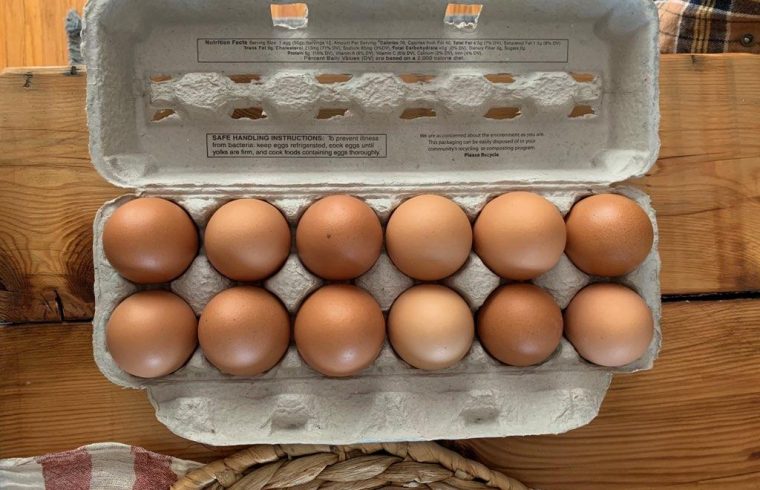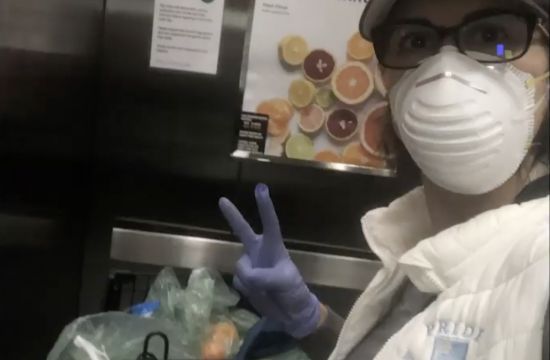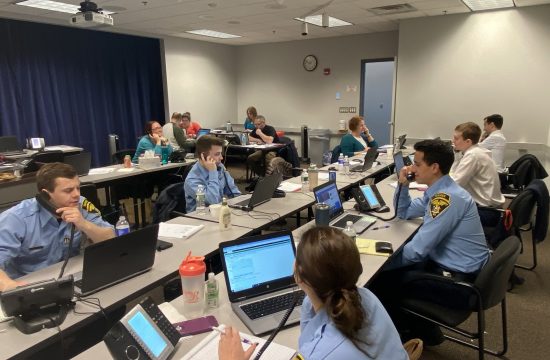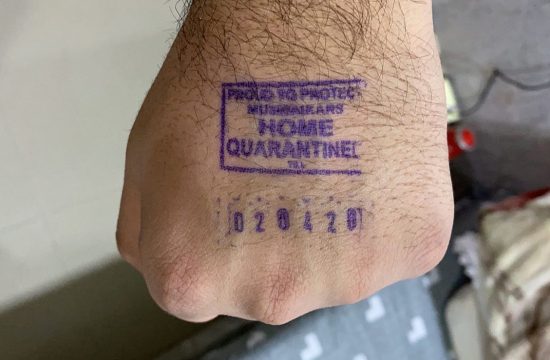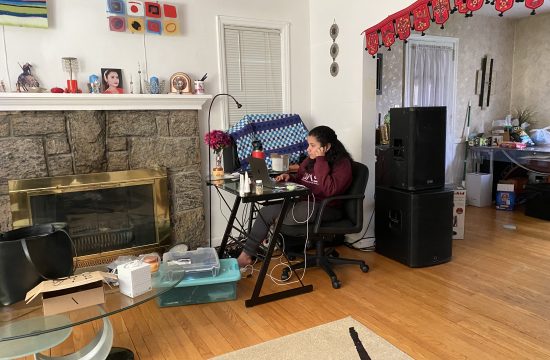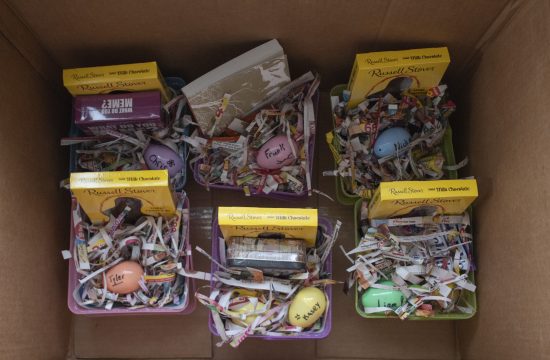by Cayla Keiser

Photo by Madeline Gibbs.
Our lives and day-to-day routines have been dramatically disrupted since the outbreak of COVID-19. For Madeline Gibbs, a fourth-year Dietetics and Nutrition major, one thing that remains consistent is making healthy eating her priority.
“With this virus, we want our immune systems to be as strong as they can be,” Gibbs said. “I think that nutrition is, in a sense, now more important than ever because it can set us up to be more resilient or successful if we are to encounter some sort of sickness.”
Dr. Barbara Lohse, head of Wegmans School of Health and Nutrition and a professor of Health Sciences, explained that eating healthy means you are consuming important nutrients. Our bodies rely on vitamins, minerals, proteins and carbohydrates to run properly.
“If you went for a week and you were eating salads, vegetables, protein sources and your body had a regular nutrient intake … and [you] compared your performance to where you basically didn’t eat all day, you would see the difference,” Lohse said.
Joanna Chiu, a fourth year Dietetics and Nutrition major, recognizes that it can be hard to dedicate time to nutrition in college, as she herself sometimes struggles. However, she urged that no matter what time of year it is, healthy eating is important to sustain.
“You’re not going to gain health overnight just from eating healthy one day. Whether we have the COVID situation or not, I think eating healthy should always be your go-to,” Chiu said.
With coursework shifting online, it can be especially tricky to maintain focus and have the energy to prepare healthy meals and snacks. When boredom sets in, we sometimes head straight for the fridge, then the pantry, then back to the fridge.
Combating Boredom Eating
To help resist the urge to go straight for a snack when our minds get bored, Lohse suggests having regular meal times scheduled into your day, planning out what you will eat ahead of time and limiting the unhealthy snacks you purchase.
“It’s what you bring into your household that is going to determine what you eat. If you know you are at risk of consuming a 1200 calorie bag of chips in one sitting, don’t buy a 1200 calorie bag of chips. Buy a smaller bag,” Lohse advised. Or, buy a large bag and portion out the chips into smaller containers as a way to prevent overeating when you’re bored.
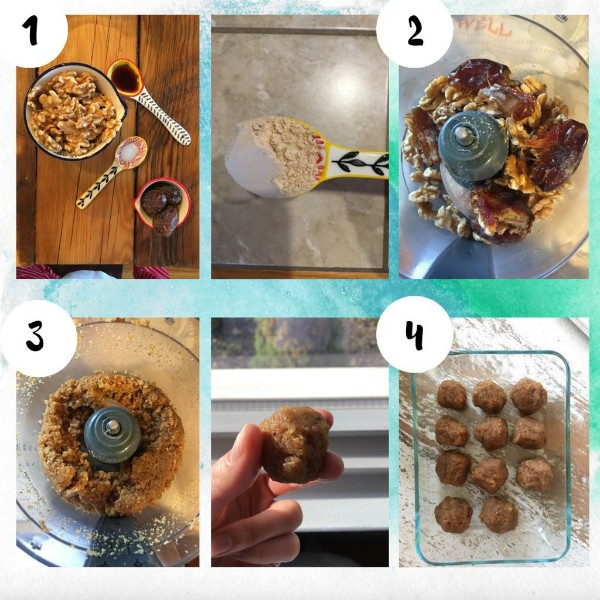
Photo by Madeline Gibbs.
Gibbs doesn’t typically keep easy-to-snack-on foods in her home. Now that we are in quarantine, she said she is much more conscious of which foods she eats and how much.
“I can’t just go out and grab another bag of this or bag of that,” Gibbs said. “With boredom, I am definitely tempted more to snack because it’s available, but I always remind myself that my ingredients are limited and my food staples are limited.”
Grocery Shopping in Age of COVID-19
Lohse recommended trying to buy foods for as long a period of time as possible if your budget allows, plan out your weekly meals and make a list when you shop.
“Make it according to the layout of the store you’re going to go to so you can be in that store and out of that store much more quickly. You want to minimize your time while you’re there,” she said.
If you are heading to the store, it’s important to take sanitary precautions and wash your hands frequently. On Monday, April 6, in accordance with the CDC’s updated guidelines, Monroe County urged all residents to wear face coverings in public to slow the spread from those who may be asymptomatic COVID-19 carriers.
“One issue I really wanted to work on prior to this virus was minimizing the amount of times I go to the store,” Gibbs said. “I’d be running to Wegmans left and right because I just didn’t have the energy to think about what I am going to eat a week or two out.”
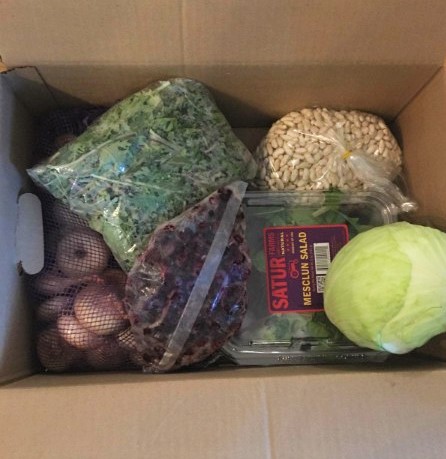
Now, Gibbs has been relying more on community farmers. She frequents the Headwater Food Hub, an online farmers market that sources fresh produce, meats, cheeses and more from regional farmers. Like online shopping, you fill a cart with everything you want and can either pick it up or have it delivered for a $10 fee.
Balancing Your Health and Wallet
Eating healthy doesn’t have to be a burden on your wallet; there are plenty of healthy food staples you can purchase in bulk. When Chiu goes to the store, she tries to purchase a new vegetable or meat each time to switch things up.
“Frozen foods and canned foods are not a bad choice,” Chiu said. “They are very inexpensive and have a long shelf life. Stuff like frozen peas and carrots you can throw into just about anything, even pasta, just to increase your vegetable intake.”
Eggs keep for a while in the fridge and are a good source of protein. With a pie crust, eggs and broccoli, you can make a quick quiche, Lohse suggested. Oats are also a pantry staple that can be used for breakfast or dessert. Pairing apples, oats and some brown sugar yields a sweet treat full of fruit and fiber. Soups are another way to make use of rice, lentils, carrots and onions, and they don’t cost a lot.
“If it’s not going to cause you more stress than you have during this time, I like to look at it [quarantine] as a great opportunity to explore healthy eating, to be creative in the kitchen. If you’re not too comfortable with cooking, [you can spend time] learning how to cook different things, experiment with different recipes and make dishes with what you have,” Gibbs said.
When it comes to eating well during quarantine, Lohse said to be more self-accepting.
“If you happen to have a day or so where you realize, ‘my gosh, I’ve been eating nonstop’ or ‘why in the world did I finish that whole bag of chips that I thought would last all week?’ — don’t beat yourself up,” Lohse said. “This is something that obviously you needed, something that you obviously let yourself do and you just have to acknowledge it and move forward from there.”

